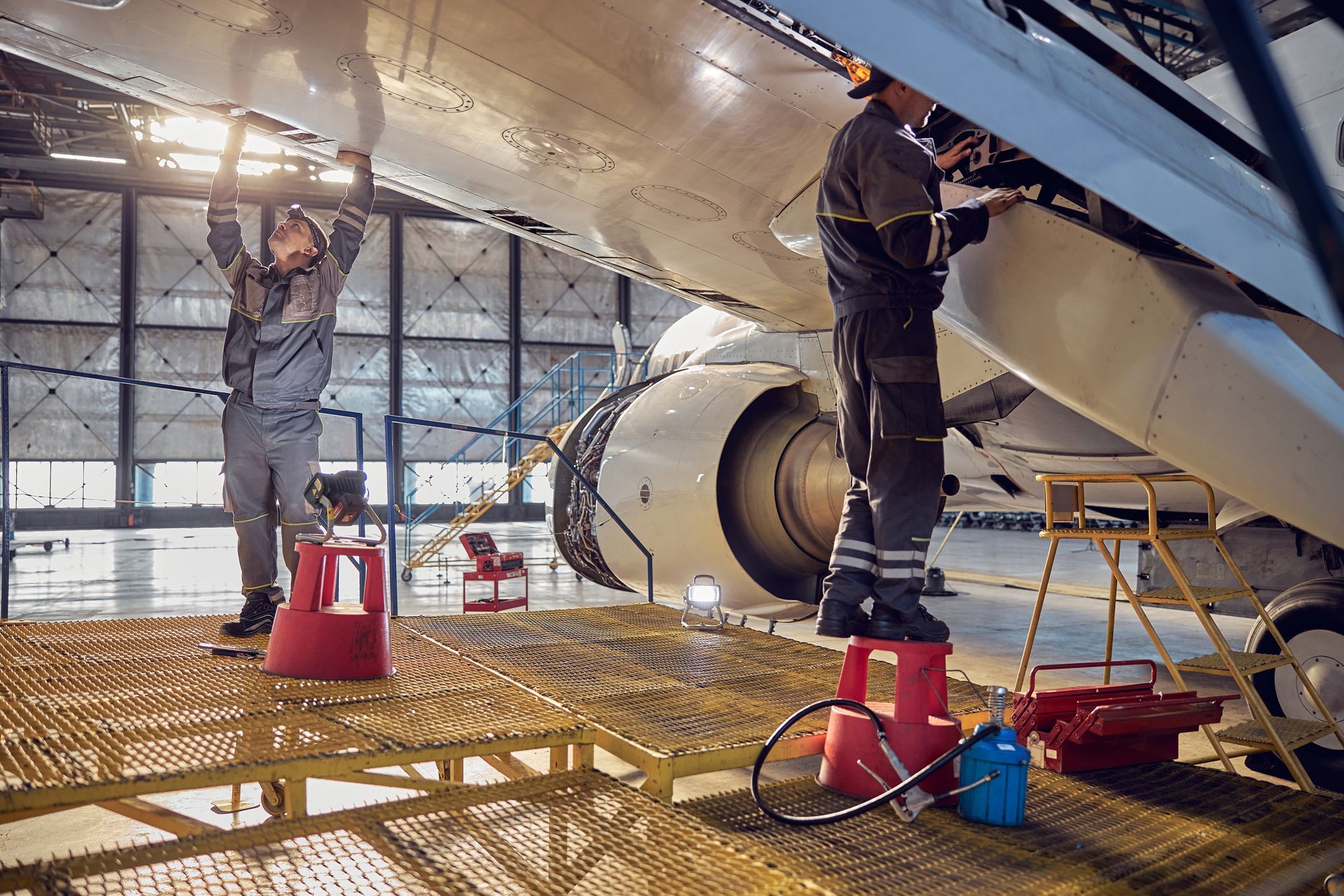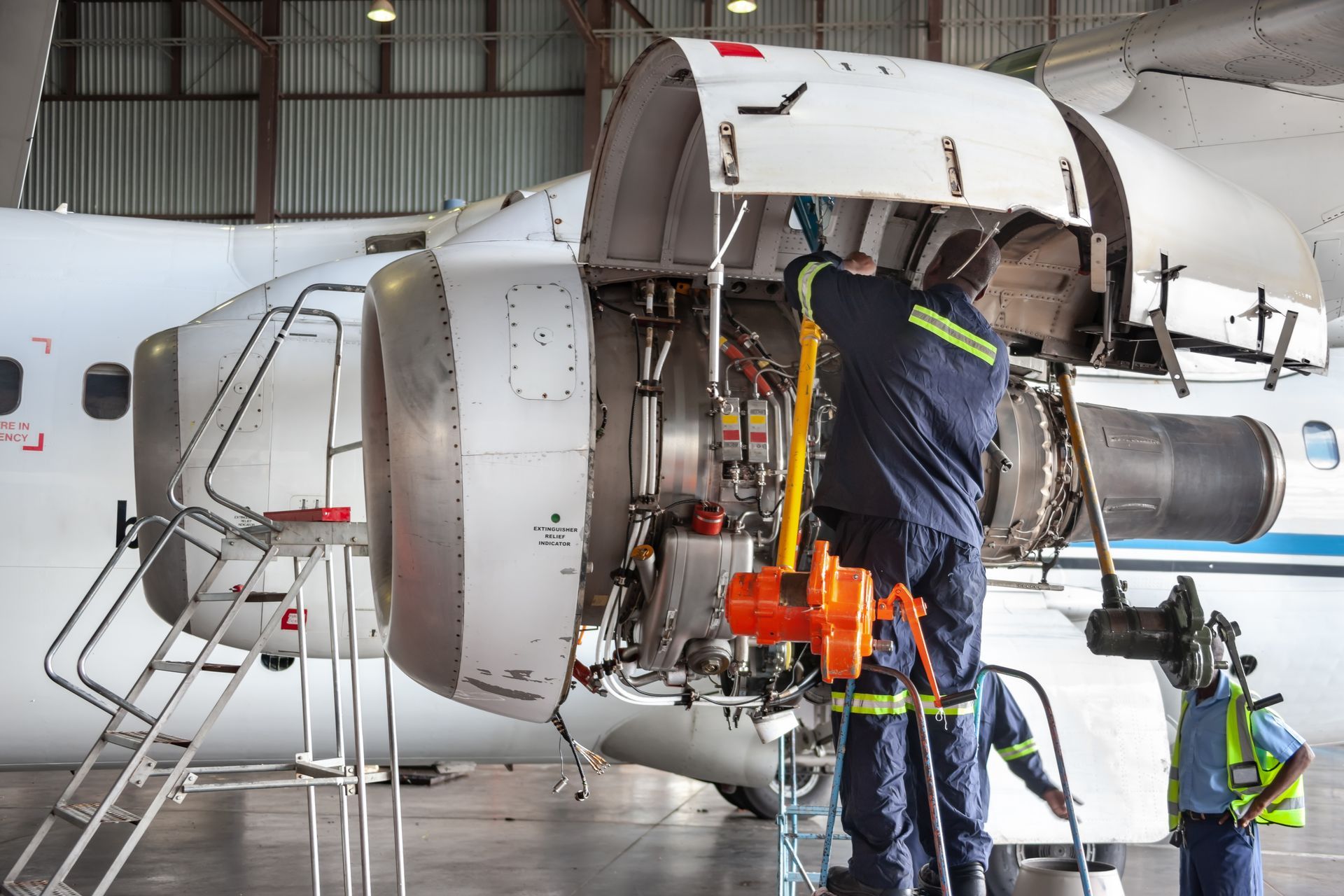Navigating Aerospace Recruitment: Top Aerospace Skills in Demand for 2025
New Title
With a record ‘industry revenue of $829 billion in 2023’, the aerospace and defence industry is an exciting landscape to join.
That said, as the aerospace sector is rapidly changing, the skillsets required to work in the industry are ever-evolving, and budding aerospace professionals must be able to adapt.
As we navigate towards 2025, we’ll take a look at some of the top skills that are in demand in aerospace engineering for the year ahead.
Before we get started, let’s first break down why aerospace engineering is an important career.
Why Are Aerospace Engineers So Important?
In short, aerospace engineers are important because they’re responsible for designing and developing cutting-edge technology that improves flight safety, fuel efficiency, and more.
Aerospace engineers are responsible for some of the most incredible advancements of mankind and test some of the most innovative and advanced technology in the world.
However, as technology advances and the aerospace industry undergoes substantial changes, businesses must attract and retain talent that is equipped with the right type of skills that go beyond a degree, for instance.
5 Skills Needed For Aerospace Engineering
Aerospace engineering roles are generally highly specialist. With the right experience, you could go on to specialise in a particular field, such as space technology, fuel efficiency, or aerodynamics to name a few.
That said, aside from a strong foundation in both maths and science, an aerospace engineering role in 2025 will demand a combination of analytical, technical, and soft skills.
These skills include, but are not limited to:
- Creative problem solving
- Digital transformation
- Written and verbal communication
- Adaptability and continuous learning
- Critical and analytical thinking
1. Creative Problem Solving
An essential skill for aerospace engineering that will remain in demand throughout 2025 is problem solving.
Aerospace engineers rely on their problem solving skills and must be able to think critically and outside the box to develop innovative solutions to solve complex performance and design issues.
A characteristic of problems that arise in aerospace engineering is that they often don’t fit neatly into any one solution. Strong problem solving skills and the ability to think critically about system behaviours, failures and design choices are essential.
Moreover, as the sector evolves and faces new challenges, such as reducing the industry’s reliance on fossil fuels, aerospace engineers will have no choice but to rely on their creative problem solving skills more than ever.

2. Digital Transformation
As the aerospace landscape continues to evolve, digital transformation is becoming a driving force as we head towards 2025.
According to the Harvard Business Review, ‘89% of large companies globally have a digital and AI transformation underway’, highlighting how much of a shift we’re already seeing and are likely to see more of next year.
Digital thread technology, for instance, is enabling the aerospace industry to integrate information throughout the supply chain and can provide engineers with a complete view.
From the integration of AI and machine learning (ML) in design processes to the use of advanced simulations, it makes sense why aerospace engineers are expected to be skilled in cutting-edge technologies.
As technologies continue to evolve, and more organisations invest in digital transformation efforts, the importance of these digital skills to remain competitive becomes all the apparent for candidates looking for their next
role in aerospace engineering.
3. Written & Verbal Communication
Clear written and verbal communication is a vital skill for aerospace engineers.
Aerospace engineers need to be able to write clear and concise technical reports, papers, and more, and be able to clearly communicate and present technical concepts to upper management as well as clients without technical backgrounds.
Moreover, strong interpersonal skills are crucial to be able to work effectively as part of a team, as aerospace projects generally require a degree of collaboration with other engineers and team members as they work to the same end.
Are you interested in finding your next role in the aerospace sector? Look no further than
Meritus.
Meritus connects worldwide industry talent with pioneering organisations in defence, space and aerospace.
Get in touch with our consultants today to learn how we can assist you.

4. Adaptability & Continuous Learning
Aerospace is a rapidly evolving industry, and engineers must be willing and committed to staying up to date with the latest developments and advancements.
Whether you design, test, and build aircraft, drones, or satellites, it’s crucial that you remain open to innovation in the aerospace engineering industry.
Engineers must be flexible when faced with new technologies, new challenges, as well as new laws.
By being willing to adapt and learn, aerospace engineers can continuously improve their knowledge and skills and stand out when applying for competitive
job opportunities.
5. Critical & Analytical Thinking
Aerospace engineers deal with an array of complex systems and are required to analyse problems with several variables from multiple angles.
Critical thinking skills demand aerospace engineers to question assumptions and explore alternatives whilst using logic, evidence, and reasoning to draw conclusions and make decisions.
Analytical thinking goes hand in hand with the maths and science aspects of aerospace engineering.
Aerospace engineers use analytical thinking to assess aircraft designs, make compromises to accommodate budgets, as well as solve any problems that crop up in the manufacturing process.
Both critical and analytical thinking can help aerospace engineers evaluate and assess the performance of an aircraft, and identify any safety hazards to prevent endangering the safety of others.

How We Can Help
Meritus is the fastest growing Aerospace, Defence and Space brand in the UK.
No matter your interest in the aerospace industry, our experienced consultants are on hand to help and place you in a dynamic role in the aerospace sector that you can truly thrive in.
Get in touch with a member of our team today to learn more.












